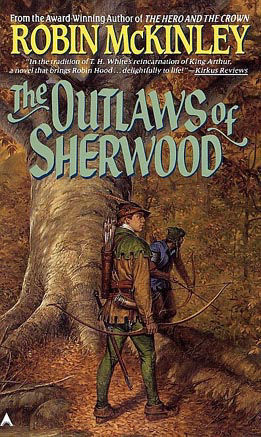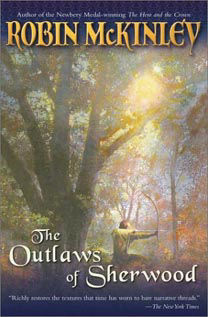
Summary
Hardcover: Greenwillow Books, 1988
Paperback: Ace Books, 1989.
On his way to Nottingham Fair, a young apprentice forester named Robin is accosted by some of his fellow foresters. Forced to flee, Robin shoots some arrows in self-defence at his attackers. One forester is accidentally killed. Robin is outlawed is outlawed for his crimes. He comes to live in Sherwood Forest and assembles a gang of "honest outlaws" to plunder rich travellers and give some comfort to the poorer Saxons. Among his band are Marian, Will Scarlet, Little John and Friar Tuck. The outlaws rescue Alan-a-Dale's bride from an unwanted marriage and help the friendly knight, Sir Richard of the Lea, repay a loan and recover his lands. The outlaws make enemies of the Sheriff of Nottingham, and the sheriff hires a bounty hunter named Guy of Gisbourne to eliminate Robin and his outlaw band. And finally, Robin wonders what will happen when the long-absent King Richard returns to Sherwood.

Contact Us